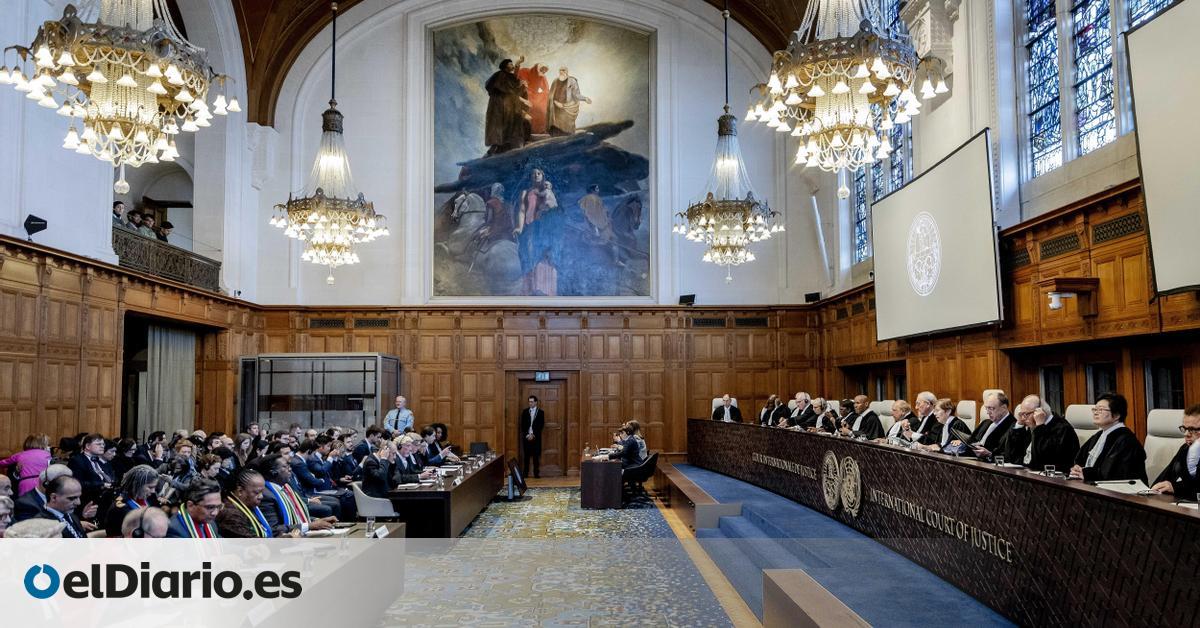
The International Court of Justice (ICJ), the highest court of the United Nations, announced this Friday that Spain has formally presented a “declaration of intervention” to participate in the procedure being developed in this court, following the lawsuit for genocide in Gaza filed by South Africa against Israel last December. The Spanish Foreign Minister, José Manuel Albares, had announced at the beginning of June that his Government would join the procedure initiated by South Africa, but had not detailed when this step would take place or how, since States can join as a plaintiff or No.
Today it has become official and – as the ICJ has reported in a statement – Spain will participate under the terms of article 63 of the Statute of the court, which establishes that all member states have the right to participate in a procedure. “By making use of the right of intervention conferred by section 2 of Article 63, Spain invokes its status as a party to the ‘Genocide Convention’,” explains the ICJ. Based on that convention, South Africa sued Israel and presented before the judges a “pattern of genocidal conduct” by its Army in the offensive against the Gaza Strip. In January, the ICJ called on Israel to “take all measures in its power to prevent acts” that are included in the Genocide Convention.
In the statement presented to the ICJ and published by the court on its website, Spain says that “it is not its intention to be a party to the procedure and will abide by the interpretation of the Genocide Convention given by the ruling” of the court based in The Hague. . Albares had stressed the same thing on June 6, when he defended that the decision does not mean supporting any of the parties, but rather assisting the judges when making a decision. The minister then detailed that Spain will provide interpretative elements to help the court when handing down a sentence in this controversial case.
The Ministry of Foreign Affairs has reported in writing on Friday that “Spain is taking this step motivated by its responsibility as a State party to the Convention. It is doing so out of a firm commitment to international law and to the work of the International Court of Justice, supporting its role as the highest judicial body of the United Nations system and as guarantor of a multilateral order based on rules.” Furthermore, “Spain is making use of this right, as other States have already done (Colombia, Mexico or Palestine) and as others that have already announced their intention to intervene will do (Ireland, Belgium or Chile).”
Mexico, Nicaragua, Colombia, Libya and Palestine itself have already requested to intervene in this procedure against Israel, but there are other countries that have also publicly indicated their interest in this case and have not yet formalized their request, as is the case of Ireland and Belgium, so Spain is the first European country to do so. The interventions of the authorized countries will occur once the ICJ begins to study the merits of the procedure to determine whether or not Israel has violated the Genocide Convention, something for which there is still no date, according to Agencia EFE.
Spain has assured that with this intervention it “seeks to contribute to the return of peace to Gaza and the Middle East. The objective is to end the war and begin to move forward in the implementation of the two States, which is the only guarantee that Palestinians and Israelis can live together in peace and security, and achieve stability in the entire region.”
Source: www.eldiario.es

